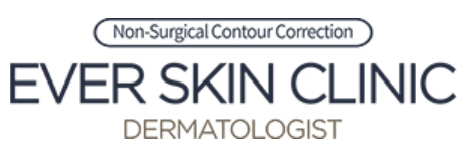Board-Certified Dermatologists in Korea: Why the Doctor’s Skill Matters More Than the Device
Introduction
Korea is famous for advanced skin treatments — from lasers and lifting devices to injectable boosters and anti-aging programs. But with so many clinics promoting the latest machines like Ultherapy, Thermage FLX, or Sylfirm X, it’s easy to overlook the most important factor behind every result: the dermatologist’s skill.
When it comes to your skin, technology matters — but the hands operating it matter even more. Let’s dive into why choosing a board-certified dermatologist in Korea makes all the difference.
What “Board-Certified Dermatologist” Means in Korea
In Korea, dermatology is one of the most competitive medical specialties. To become a board-certified dermatologist, a doctor must:
- Complete 6+ years of medical training and 4 years of dermatology residency
- Pass a rigorous national examination by the Korean Dermatological Association (KDA)
- Receive certification recognized by the Ministry of Health and Welfare
- Continue ongoing education in medical lasers, injectables, and skin pathology
This ensures that the doctor not only understands aesthetic procedures but also the science of the skin itself — from the epidermis to the SMAS layer.
Why Skill Matters More Than the Machine
You’ll often hear clinics advertise, “We have the latest laser!” or “We use the newest lifting device!” But a high-tech machine in the wrong hands can lead to poor outcomes — or even complications like burns, bruising, or uneven results.
A skilled dermatologist knows how to:
- Adjust energy levels and depths for your unique skin thickness and tone
- Combine multiple devices safely for better synergy (e.g., Ultherapy + Rejuran)
- Recognize underlying skin conditions before treatment
- Prevent side effects such as PIH (post-inflammatory hyperpigmentation) or fat loss
The real artistry comes from customizing energy-based treatments to each patient, not just pressing a button.
Skin Doctors vs. Board-Certified Dermatologists: Key Differences
Not all “skin doctors” in Korea are dermatologists. Some are general practitioners or family medicine doctors who offer cosmetic treatments without formal dermatology training.
Here’s why it matters:
- Board-certified dermatologists can diagnose both medical and aesthetic conditions.
- They understand how deep lasers should go to treat melasma, redness, or acne scars without causing harm.
- They can manage complications like burns or allergic reactions safely in-house.
- Their treatment plans are personalized, not based on preset machine protocols.
In short, a board-certified dermatologist treats the cause, not just the surface.
How to Check If Your Doctor Is Board-Certified in Korea
Before booking a treatment, look for these signs:
- The clinic website lists “피부과 전문의” (board-certified dermatologist) under the doctor’s name.
- The doctor is a member of the Korean Dermatological Association (KDA).
- The clinic is registered as a dermatology clinic (피부과의원), not just a general “aesthetic clinic.”
You can also check the KDA’s online directory or ask the clinic directly. A reputable dermatologist will always be transparent about credentials.
Why International Patients Should Pay Attention
For visitors traveling to Korea for treatments, the abundance of options can be overwhelming. Some clinics rely heavily on marketing or celebrity endorsements rather than medical expertise.
Choosing a board-certified dermatologist ensures:
- Consistent safety standards
- Accurate skin assessment before treatment
- Customized treatment combinations for your skin type (Asian, Caucasian, or melanin-rich skin)
- Professional aftercare if any reaction occurs
Even with the same device — for example, Ultherapy, Thermage FLX, or Shurink Universe — results can look completely different depending on who performs it.
Final Thoughts
In Korea’s highly competitive skincare scene, devices evolve every year, but the skill of a board-certified dermatologist remains timeless. The difference between “just okay” results and truly glowing, balanced, and lifted skin often comes down to the expertise behind the treatment.
When choosing your next clinic in Seoul, Gangnam, or Myeongdong — don’t just ask “What machine do you use?”
Ask “Who’s performing it?”



